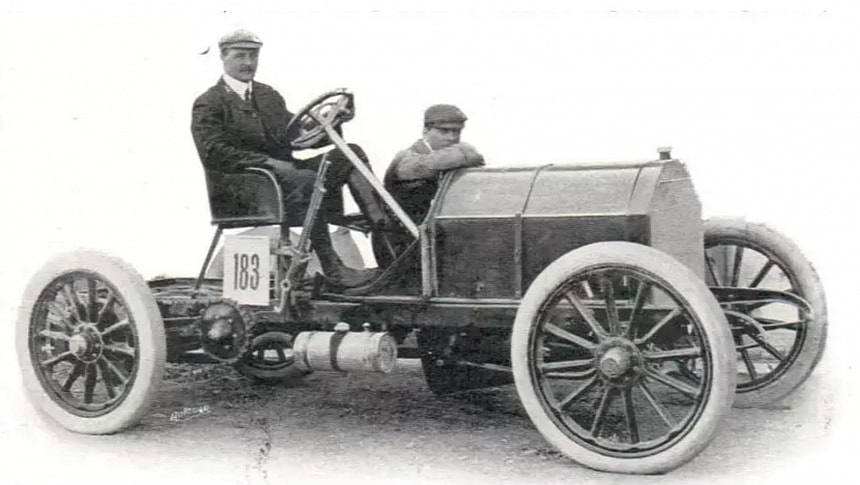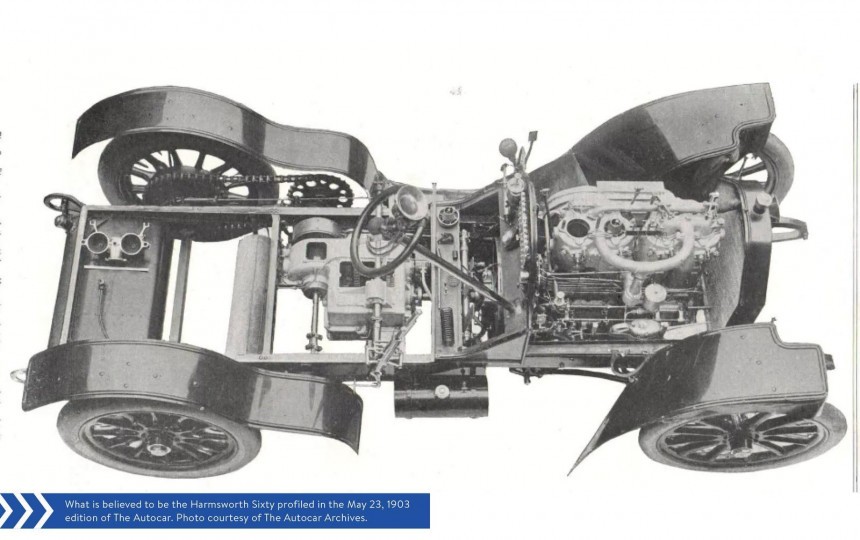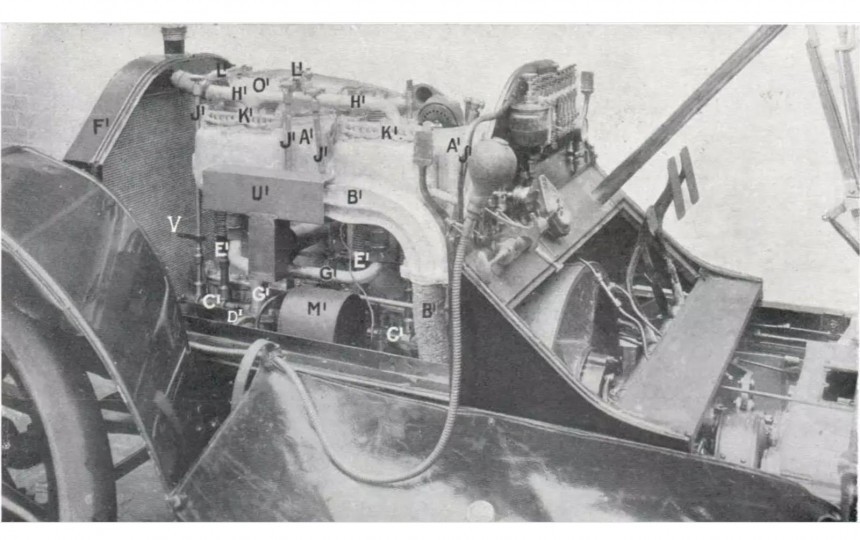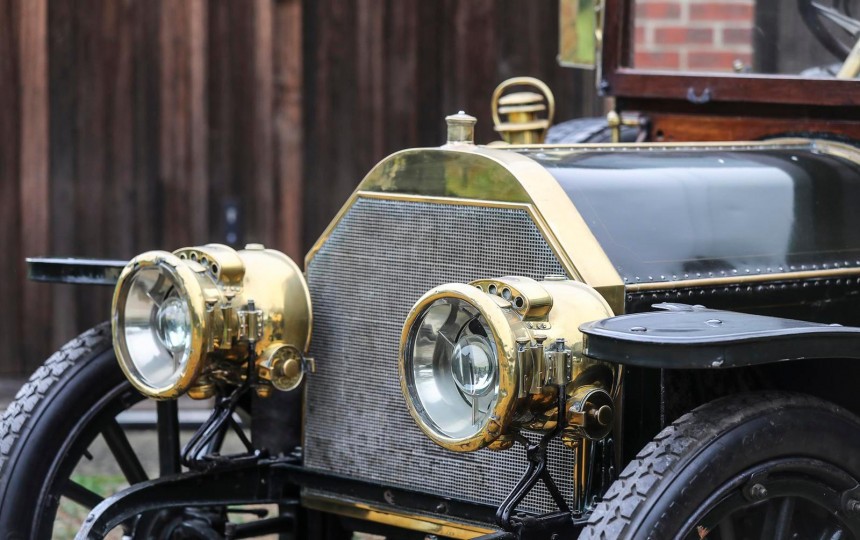‘Mercedes? Never heard of them,’ said absolutely no person (living or less so) with even the most vague awareness of the existence of combustion engines. The name is, in many ways, synonymous with the automobile, and for good reason. After all, the German brand set the foundation of the automobile as we know it. But where does its name come from?
It all starts with an Austrian political figure with a soft spot for motor wagons, a keen sense of business, and a daughter. It then continues with an affluent British publisher and nobleman and a pair of German engineers, Gottlieb Daimler and Wilhelm Maybach. The two mechanically-inclined gearheads established Daimler Motoren Gesellschaft (DMG) in 1890.
One year before, a certain Mercédès Adrienne Ramona Manuela Jellinek was born as the daughter of Emil Jellinek, a reputed diplomat. By 1894, the Jellinek family had moved to Nice, on the French Riviera, as the head of the family had been appointed Consul General for the Austrian Empire. However, his most ardent passions lay in the automotive business, not world geopolitics.
In 1896, Emil Jellinek learned about a new motorcar produced by DMG and personally went to Stuttgart to visit the factory and meet the two entrepreneurs. Two years later, he was the official DMG agent on the French Riviera – at the time, one of the biggest car markets in the world, second only to Paris. (Yes, there was a time when the French were the top carmakers in the world).
However, Jellinek was not pleased with neither the cars’ styling nor its too-Germanic name (the Franco-German mutual hatred was at a high mark back then, following the war between the two countries from the early 1870s). Instead, he sold the cars using his daughter’s name, Mercedes (as a curiosity, the word means ‘mercies’ in Spanish) and asked DMG to build a vehicle according to his specifications.
Daimler obliged, and it proved to be the best decision the company would ever make: the new cars were stylish, robust, and reliable. In 1901, the Mercedes 35 HP model won several notable automobile races, establishing the name forever. In 1902, DMG trademarked the name for all its future automobiles.
There was one legal aspect to this naming convention: Daimler had licensed his engines to be built in France by two prominent industry names at that time: Panhard&Levassor, and Peugeot. Ironically, the inventor and builder of the car couldn’t use his name for his own automobile due to bureaucratic tie-ins. 'Mercedes' solved all the problems quickly and easily without any legal implications.
In 1902, DMG also released the Simplex – a 40-hp variant of the 1901 model- and began developing an even more advanced engine version. Toward the end of the year, the Mercedes-Simplex 60 HP was ready, and when it debuted, it simply thrashed all its rivals in racing events throughout France and England. The four-cylinder engine displaced a massive 9.25 liters, with an undersquare architecture with overhead valves. 140 x 150 mm bore and stroke (5.51 x 5.90 inches). With a top speed of 80 mph (129 kph), the Simplex 60 HP was incredibly fast and fast-selling to affluent pistonheads.
One hundred two automobiles were assembled between 1902 and 1905, and only five are known to have survived to this day. One of them is in the Mercedes-Benz Museum – the first example ever made, which was bought and used by Emil Jellinek, DMG’s French connection. Another one is the first Simplex 60 sold in the UK, acquired by another gearhead of worldwide proportions.
British publishing magnate Alfred C.W. Harmsworth is the customer who, in 1902, ordered one of the modern Mercs. A very influential – and affluent – media magnate, Harmsworth was also a fanatic piston addict. His private collection was the vastest in all of England, including the first Mercedes automobile sold in the UK, a 40-hp Simplex from 1901. Small wonder, then, that the latest model from Daimler’s factory would find a house in the Harmsworth garage.
But the story about his Simplex 60 had only just begun. The man bought the car in 1902 and kept it until his death two decades later. His 12-year-young son inherited the car and passed it along to one of his descendants some 65 years later. Between 1987 and 2024, the vehicle had two more owners.
Let’s do the math: a one-in-five very early Mercedes automobiles stayed in the same family for 121 years. It spent almost half its life in a museum in England but never traded to anyone. On March 1, 2024, it became the most expensive antique car (pre-1930) ever sold at an auction after it fetched $11 million at the Amelia Island event ($12,105,000, including the buyer’s premium). The previous record belonged to a 1924 Hispano-Suiza H6C 'Tulipwood' Torpedo, at $9,245,000, set in 2022.
One year before, a certain Mercédès Adrienne Ramona Manuela Jellinek was born as the daughter of Emil Jellinek, a reputed diplomat. By 1894, the Jellinek family had moved to Nice, on the French Riviera, as the head of the family had been appointed Consul General for the Austrian Empire. However, his most ardent passions lay in the automotive business, not world geopolitics.
In 1896, Emil Jellinek learned about a new motorcar produced by DMG and personally went to Stuttgart to visit the factory and meet the two entrepreneurs. Two years later, he was the official DMG agent on the French Riviera – at the time, one of the biggest car markets in the world, second only to Paris. (Yes, there was a time when the French were the top carmakers in the world).
Daimler obliged, and it proved to be the best decision the company would ever make: the new cars were stylish, robust, and reliable. In 1901, the Mercedes 35 HP model won several notable automobile races, establishing the name forever. In 1902, DMG trademarked the name for all its future automobiles.
There was one legal aspect to this naming convention: Daimler had licensed his engines to be built in France by two prominent industry names at that time: Panhard&Levassor, and Peugeot. Ironically, the inventor and builder of the car couldn’t use his name for his own automobile due to bureaucratic tie-ins. 'Mercedes' solved all the problems quickly and easily without any legal implications.
One hundred two automobiles were assembled between 1902 and 1905, and only five are known to have survived to this day. One of them is in the Mercedes-Benz Museum – the first example ever made, which was bought and used by Emil Jellinek, DMG’s French connection. Another one is the first Simplex 60 sold in the UK, acquired by another gearhead of worldwide proportions.
British publishing magnate Alfred C.W. Harmsworth is the customer who, in 1902, ordered one of the modern Mercs. A very influential – and affluent – media magnate, Harmsworth was also a fanatic piston addict. His private collection was the vastest in all of England, including the first Mercedes automobile sold in the UK, a 40-hp Simplex from 1901. Small wonder, then, that the latest model from Daimler’s factory would find a house in the Harmsworth garage.
Let’s do the math: a one-in-five very early Mercedes automobiles stayed in the same family for 121 years. It spent almost half its life in a museum in England but never traded to anyone. On March 1, 2024, it became the most expensive antique car (pre-1930) ever sold at an auction after it fetched $11 million at the Amelia Island event ($12,105,000, including the buyer’s premium). The previous record belonged to a 1924 Hispano-Suiza H6C 'Tulipwood' Torpedo, at $9,245,000, set in 2022.































